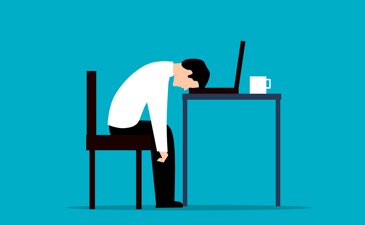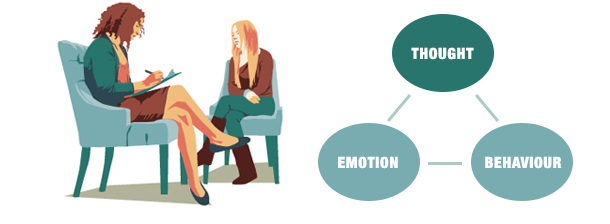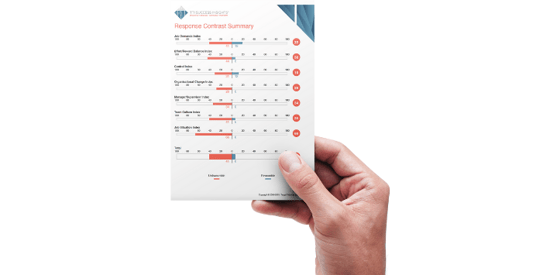Top 10 Stress Management Tips
Stress management is different for everyone. There's no one-size-fits-all approach; however, there are common strategies that emerge time and time again in the stress management literature. Having reviewed many of these strategies, here are our top 10.
Finding ways to manage stress is less about making huge changes or rethinking career ambitions, and it’s more about focusing on the things that you may be able to influence in your work environment. The first step to building a happier and healthier life is to identify the common causes of stress and key signs of stress.
Because of the fluctuation that many people are experiencing in their professional and personal lives due to the Covid-19 restrictions and lockdowns, we want to help make the first step easier. That is why we have partnered with TTI Success Insights (ANZ) to offer complimentary Stress Quotient assessments in July 2021. See more details at the end of the article, and here are our top 10 stress management tips.
1. Sleep: My Pretty, Sleep
 It’s a vicious cycle: you’re stressed so it’s harder to get to sleep; lack of sleep leads to feeling more stressed. Between 7-9 hours is the recommended amount for most people. Trouble sleeping? Some things you might like to try before hitting the hay include taking a hot bath, smelling some lavender, playing acoustic music, drinking tea, using ear plugs or eyes shades, avoiding bright screens, listening to an audiobook, stretching your muscles, and breathing exercises like the 4-7-8 technique. The best advice: try to make your goal relaxation, not sleep.
It’s a vicious cycle: you’re stressed so it’s harder to get to sleep; lack of sleep leads to feeling more stressed. Between 7-9 hours is the recommended amount for most people. Trouble sleeping? Some things you might like to try before hitting the hay include taking a hot bath, smelling some lavender, playing acoustic music, drinking tea, using ear plugs or eyes shades, avoiding bright screens, listening to an audiobook, stretching your muscles, and breathing exercises like the 4-7-8 technique. The best advice: try to make your goal relaxation, not sleep.
2. Exercise: For 60 Seconds
Exercise is shown to be as effective as treating depression as anti-depressants. Don’t think you have time? Research suggests that 1 minute of SUPER high intensity exercise (e.g., going all-out on an exercise bike) may produce the same benefits as 45 minutes of moderate intensity exercise.
3. Meditate: Ommmm
 There are hundreds of scientific papers detailing the benefits of mindfulness meditation, one of the fastest growing stress management practices in business. A number of the world's biggest brands have developed programs, and the popular 8-week Mindfulness-Based Stress Reduction (MBSR) program has a large amount of evidence supporting its effectiveness.
There are hundreds of scientific papers detailing the benefits of mindfulness meditation, one of the fastest growing stress management practices in business. A number of the world's biggest brands have developed programs, and the popular 8-week Mindfulness-Based Stress Reduction (MBSR) program has a large amount of evidence supporting its effectiveness.
4. Diet: Go Bananas
You've heard it before: cut the soft drink and doughnuts; chow down on more fruit and veg. Going vegan, paleo, or gluten free may change your life… or not. (We’re all built differently.) Drinking lots of water and taking fish oil or a multivitamin are among the most common dietary recommendations for helping to manage stress. Sounds boring, and change doesn't happen overnight, but the truly life-changing advice is often overlooked for this very reason. Oh, and did you know that bananas are nature's natural stress remedy?
5. Caffeine: Admit It, You Have a Problem
 Although we could throw in alcohol, nicotine, painkillers, and other fun substances into this category and call it “drugs,” caffeine is an excessively commonplace means of coping with stress. Prolonged use of this stimulant can increase the stress hormone known as cortisol, which is associated with a number of deleterious health effects. Research indicates that staying below 4 cups of coffee per day is a safe bet, and not to take any cupped lightening after 2pm so that it doesn’t interfere with sleep.
Although we could throw in alcohol, nicotine, painkillers, and other fun substances into this category and call it “drugs,” caffeine is an excessively commonplace means of coping with stress. Prolonged use of this stimulant can increase the stress hormone known as cortisol, which is associated with a number of deleterious health effects. Research indicates that staying below 4 cups of coffee per day is a safe bet, and not to take any cupped lightening after 2pm so that it doesn’t interfere with sleep.
6. Gratitude: Write Down 3 Things You Are Grateful For

Gratitude is the most direct path to happiness. One of the founders of the positive psychology movement, Martin Seligman, describes a study in his book Flourish (2011) involving participants who wrote down 3 things they were grateful for at the end of each day. Despite seeming awkward at first, this is shown to be one of the most practical and effective ways to increase happiness, reduce depression, and manage stress.
7. Laugh: Watch 5 Cat Videos
Seriously. Look for something cute or amusing that provides a quick burst of positive emotion. Cats, dogs, people falling over... whatever gives you the giggles. We recommend 5, since humans have a natural negativity bias and the magic 5:1 ratio says that for every 1 negative event, you need around 5 positive events to tip the emotional scales back into positive territory.
8. Socialise: Talk to Someone
Freud famously got psychotherapy underway after observing that the condition of a neurotic patient called “Anna O” seemed to improve simply by talking about her problems (this is where psychotherapy gets the name “talking cure.”) Many of Freud’s ideas are now considered obsolete, but there’s no denying that human beings are social animals: our biology has been moulded by hundreds of thousands of years of communal interaction. When people talk, eyeball-to-eyeball, the body is primed to release hormones like oxytocin and serotonin that counterbalance stress hormones. Conversely, people who live alone or feel socially isolated report lower levels of happiness and are more likely to die early. To combat stress, set aside some time to talk to a colleague, friend, family member, coach, or professional specialist.
9. Dispute: Your Thoughts

You may have heard of the gold-standard therapeutic intervention known as Cognitive Behavioural Therapy (CBT). The approach is based on the premise that emotions follow on the heels of our thoughts. By tweaking our thoughts, we can quickly change our mood. Humans have a tendency to exaggerate, generalise, distort facts, catastrophes, and use black and white thinking. For example: "This ALWAYS happens!" and "EVERYONE hates me!" Geez, Louise. Everyone? Every single person on the planet holds you in contempt? An indispensable stress prevention technique is learning about the common types of cognitive distortions.
10. Expectations: Keep Yours in Perspective
Happiness = Reality – Expectations. Stress is what happens when there is a gap between what we want to happen in our world and what actually happens. To use the words of Stephen Covey, "frustration is a function of our expectations." You would never be stressed if you didn't have any expectations. Sadly though, humans appear to have an infinite capacity for taking things for granted. We forget that the average person today lives better, lives longer, and has access to better creature comforts than ancient kings, lords, and emperors. We forget that around 80% of the world’s population lives on less than $10 a day. Half live on less than $2.50. We take for granted our achievements, technology, relationships, and health. Keep perspective. In moments of stress, ask yourself:
- Is this a first world problem?
- Am I suffering from great expectations?
- Will this matter in 5 years?
Stress Quotient Assessment
 Since it may be helpful for individuals and teams experiencing elevated levels of stress related to the Covid-19 restrictions, we have partnered with our supplier TTI Success Insights (ANZ) to offer complimentary Stress Quotient assessments in the month of July 2021. Simply email our team at hello@dtssydney.com to request more information and/or a complimentary assessment. We're here to help.
Since it may be helpful for individuals and teams experiencing elevated levels of stress related to the Covid-19 restrictions, we have partnered with our supplier TTI Success Insights (ANZ) to offer complimentary Stress Quotient assessments in the month of July 2021. Simply email our team at hello@dtssydney.com to request more information and/or a complimentary assessment. We're here to help.
In the meantime, download the Stress Quotient Infographic.
Note: This blog post was originally shared in June 2016, and it was refreshed and republished in July 2021 with up to date information and context.

Theo Winter
Client Services Manager, Writer & Researcher. Theo is one of the youngest professionals in the world to earn an accreditation in TTI Success Insight's suite of psychometric assessments. For more than a decade, he worked with hundreds of HR, L&D and OD professionals and consultants to improve engagement, performance and emotional intelligence of leaders and their teams. He authored the book "40 Must-Know Business Models for People Leaders."


/Workshop%2026_%20Time%20Management%20%26%20Productivity%20Hackathon.png?width=374&name=Workshop%2026_%20Time%20Management%20%26%20Productivity%20Hackathon.png)
We Would Like to Hear From You (2 Comments)